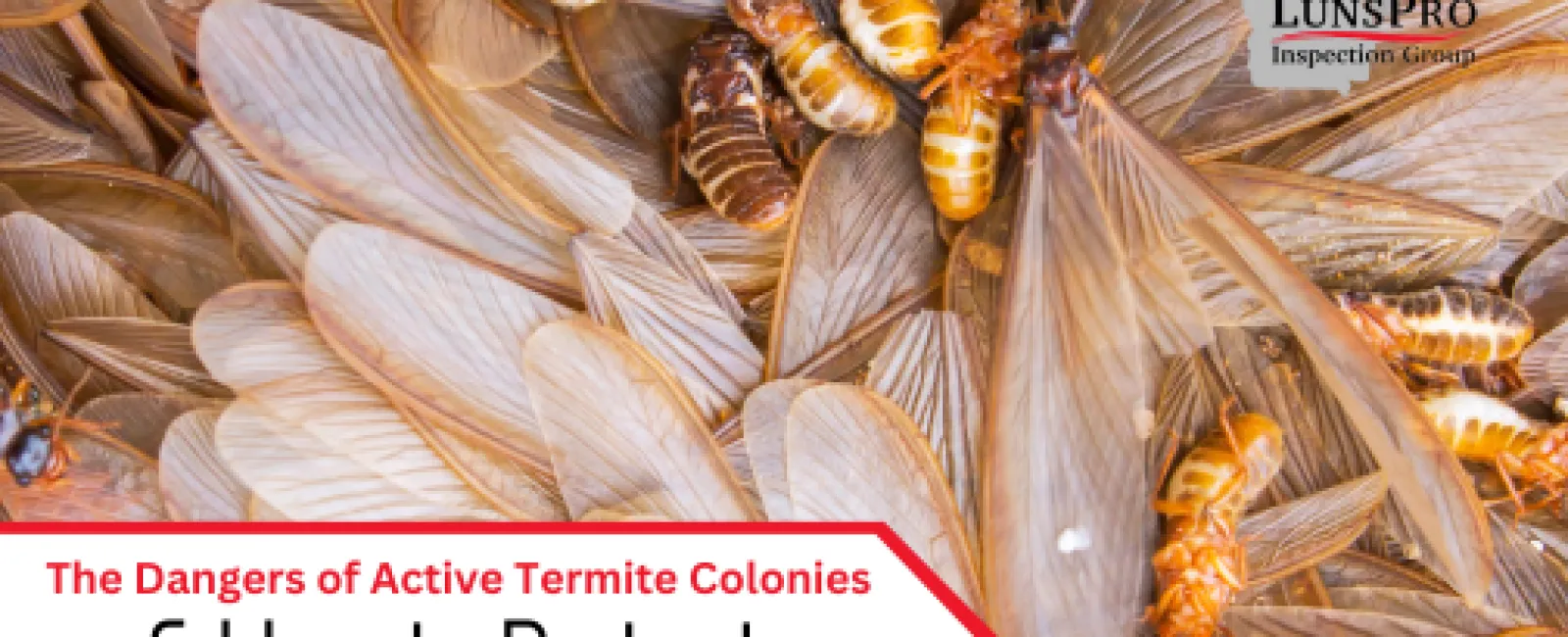Termites are one of the most destructive pests homeowners can face, causing billions of dollars in damage annually. These silent destroyers work behind the scenes, eating away at the structure of your home before you even realize they are there. One of the most alarming signs of an infestation is an active termite colony, as spotted in our latest inspection.
Signs of an Active Termite Infestation
Termites can be difficult to detect, but knowing the signs can save your home from extensive damage. Look out for:
Swarming Termites - If you notice winged termites inside or outside your home, it's a major red flag.
Discarded Wings - After termites swarm, they drop their wings, leaving them scattered around windows, doors, or foundation areas.
Mud Tubes - Subterranean termites build mud tubes along walls and foundations to protect themselves as they move.
Hollowed or Damaged Wood - If wood sounds hollow when tapped or breaks apart easily, termites may be eating it from the inside.
Frass (Termite Droppings) - Drywood termites leave behind tiny, pellet-like droppings near infested areas.
How Termites Damage Your Home
Termites eat cellulose, the organic compound found in wood, drywall, and even furniture. Over time, their feeding can:
Weaken structural beams and support - This can lead to sagging floors, cracked walls, and even potential collapse.
Damage doors and windows - Wood around doors and windows may warp, making them difficult to open and close.
Compromise insulation and wiring - Some termites chew through insulation and electrical wiring, increasing the risk of fire hazards.
How to Protect Your Home from Termites
If you suspect termites or want to prevent an infestation, follow these essential steps:
Schedule Regular Inspections - A professional termite inspection can catch signs of activity early, saving you from costly repairs.
Eliminate Moisture Issues - Termites thrive in humid environments. Fix leaks, improve drainage, and use dehumidifiers in crawl spaces.
Reduce Wood-to-Soil Contact - Keep firewood, mulch, and wooden structures away from your home's foundation.
Seal Cracks and Gaps - Close any openings around doors, windows, and foundation areas to limit termite entry points.
Consider Preventative Treatments - Professional treatments, including soil barriers and bait systems, can provide long-term termite protection.
An active termite colonycan wreak havoc on your home before you even notice the damage. The best way to protect your property is through early detection and professional inspections. If you're in Atlanta, Alpharetta or Athens, LunsPro Inspection Group offers comprehensive termite inspections to keep your home safe.

